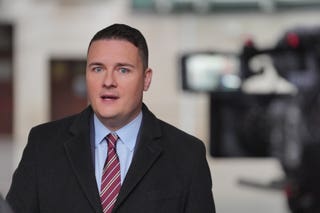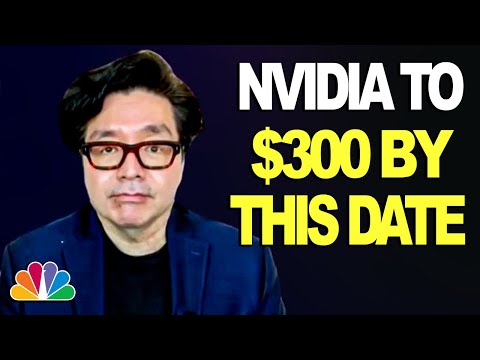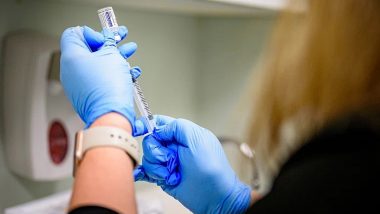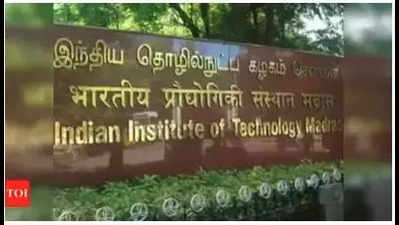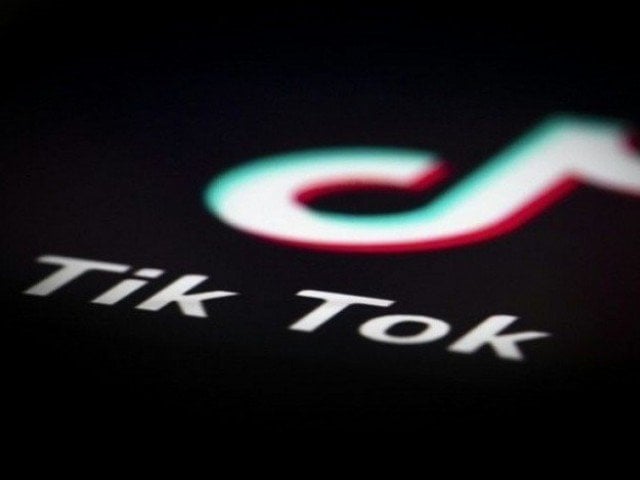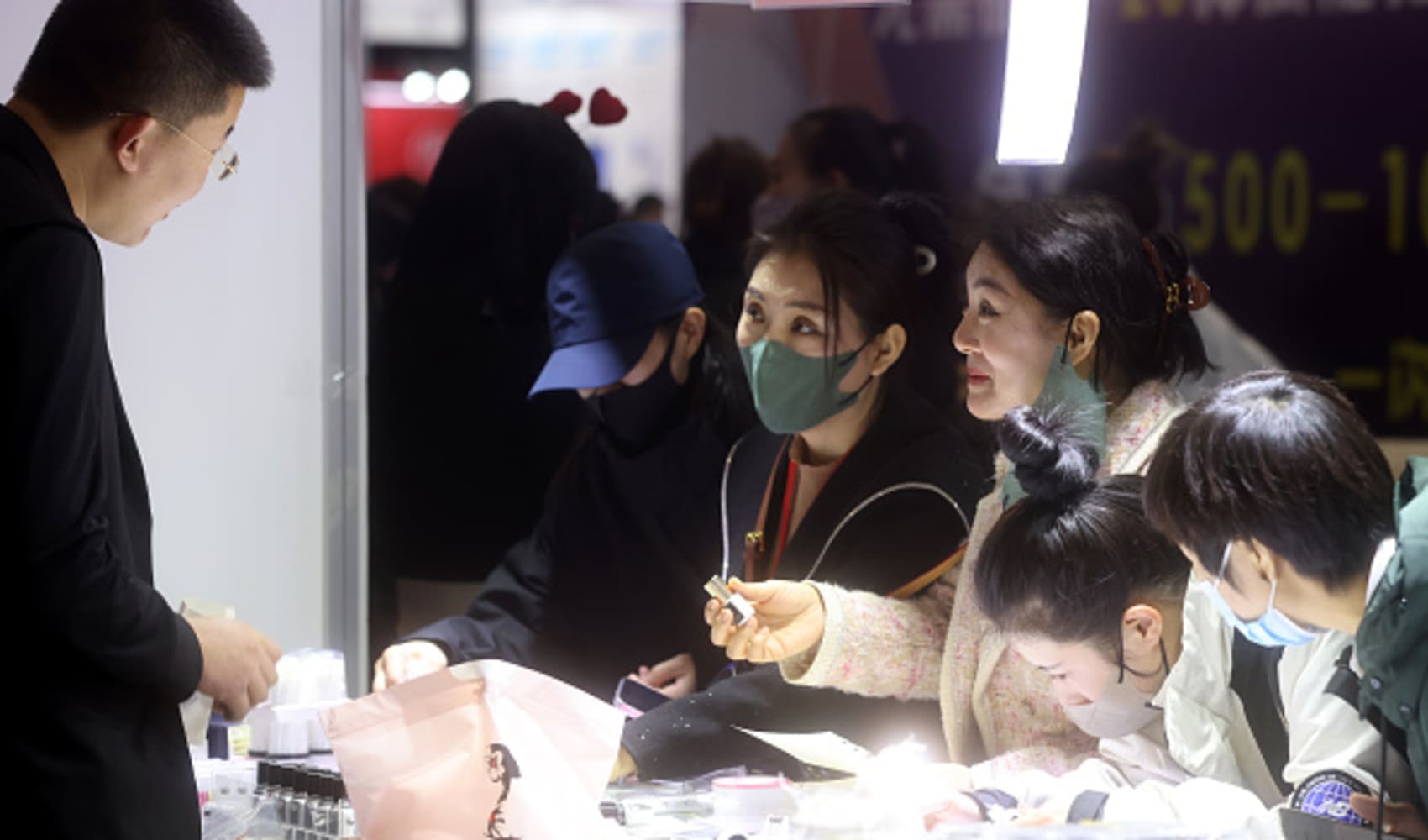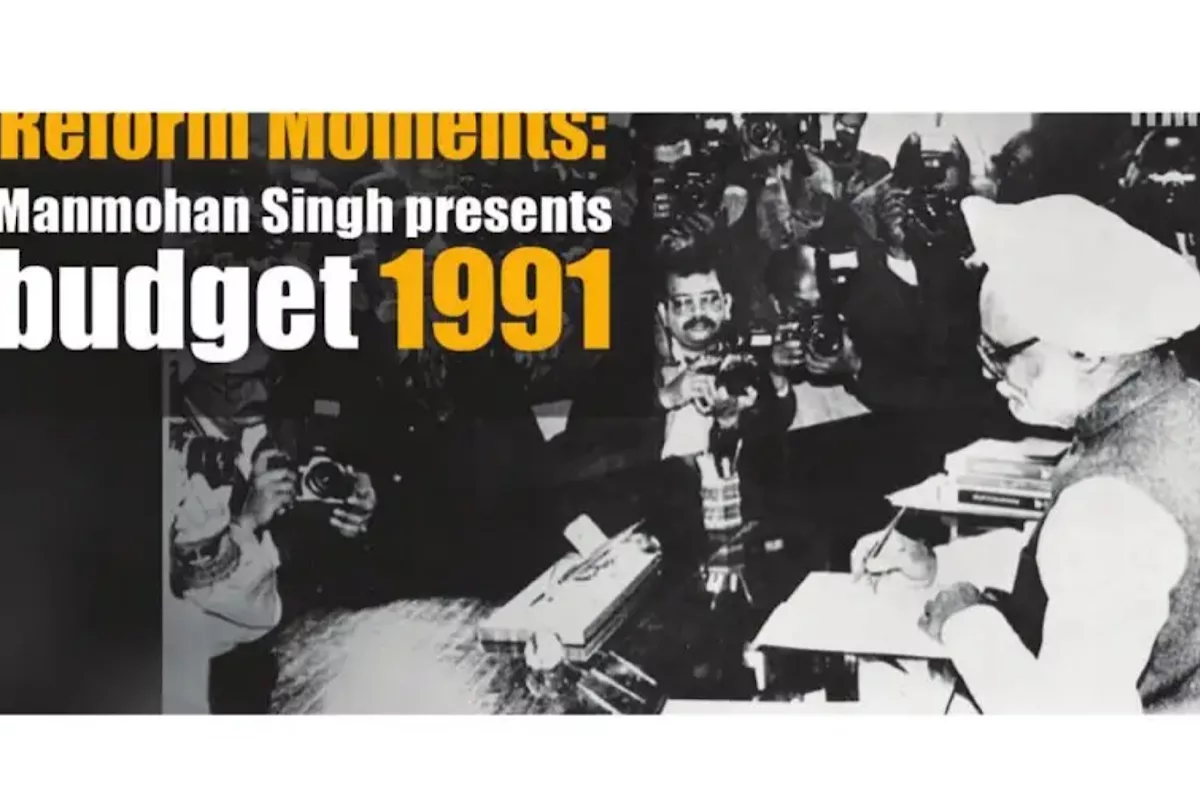betfred zellis
 betfred contact details
Regret Sleeping on Near Protocol? Don’t Miss Out on Qubetics—The Future of Decentralised Tech Is Here!
betfred contact details
Regret Sleeping on Near Protocol? Don’t Miss Out on Qubetics—The Future of Decentralised Tech Is Here!
NoneIn keeping with a long-standing Thanksgiving tradition, President Joe Biden recently pardoned a pair of turkeys . During a ceremony at the White House, the birds — named Peach and Blossom — were spared from the dinner table and given a new lease on life. While it was an act of pure political pageantry, it highlights the president’s expansive pardon powers — which could be used liberally during his final two months in office. Javascript is required for you to be able to read premium content. Please enable it in your browser settings. Get the latest news, sports, weather and more delivered right to your inbox.
Surveillance tech advances by Biden could aid in Trump’s promised crackdown on immigration
Lenovo to Launch World’s First Rollable Screen DeviceWREXHAM made it two home wins in the space of four days with a hard-fought 1-0 victory over Lincoln City in League One. James McClean's shot in the second half which went in off a Lincoln defender proved to be the difference between the sides as Phil Parkinson's men remain second in the table and unbeaten at The Racecourse. The Reds didn't play as well as they did in Saturday's 3-0 success against Exeter City but the result is all that matters. Wrexham, without a game this weekend, remain four points behind leaders Wycombe Wanderers. After his side produced a superb display against Exeter, Parkinson named an unchanged side against Lincoln. Wrexham saw a lot of the ball in the early exchanges and George Dobson headed wide from McClean's cross. Lincoln came more into the game and Reds' goalkeeper Callum Burton made a brilliant reflex save to keep out Paudie O'Connor's header from Sean Roughan's free-kick. Another Imps set-piece caused problems with Bailey Cadmarteri putting his effort wide. Wrexham came back into it and Ollie Palmer went down under Erik Ring's challenge in the area but no penalty was given. Lincoln had the upper hand and a low free-kick into the area was deflected just over the bar by a Wrexham player. There was a sight of goal for Wrexham when McClean, who found himself in a central position, crossed to the back-post but Palmer's shot went across goal. Jack Moylan fired wide on the turn for Lincoln and there was an even better chance for Wrexham when Lewis Brunt's header struck the top of the crossbar from McClean's free-kick just before the break. Palmer's header from Dobson's cross was saved by keeper George Wickens with the first opportunity of the second half but it was a subdued performance by the Reds. It got better as Palmer took a cross down and fired over and Wrexham took the lead in the 67th minute. Dobson picked out McClean in the area and his shot found the back of the net off defender Tendayi Darikwa. Palmer headed straight at Wickens from Barnett's cross but Lincoln weren't out of it. Jack Moylan and Jovon Makama both went close while Rob Street wasn't far away in added time before Barnett shot wide for Wrexham and one goal proved to be enough. Wrexham (3-5-2): Burton; Cleworth, O'Connell, Brunt; Barnett, Dobson, James (James 77), Rathbone (O’Connor 89), McClean; Lee (Mullin 73), Palmer. Subs not used: Howard, Scarr, Revon, Faal. Lincoln City (3-5-2): Wickens; Darikwa, O'Connor, Roughan; Ring (Hamilton 72), McGrandles (McKiernan 82), Erhahon, Moylan, Jefferies; Cadamarteri (Draper 72), Makama (Street 82). Subs not used: Pardington, Jackson, Duffy. Attendance: 11,786 (631 from Lincoln).
Foxconn Invests in AI Data Center Firm Zettabyte to Boost Sustainable ComputingZURICH — Saudi Arabia was officially confirmed Wednesday by FIFA as host of the 2034 World Cup in men's soccer, giving the oil-rich kingdom its biggest prize yet for massive spending on global sports driven by Crown Prince Mohammed bin Salman. The Saudi bid was the only candidate and was acclaimed by the applause of more than 200 FIFA member federations. They took part remotely in an online meeting hosted in Zurich by the soccer body's president Gianni Infantino. "The vote of the congress is loud and clear," said Infantino, who had asked officials on a bank of screens to clap their hands at head level to show their support. The decision was combined with approving the only candidate to host the 2030 World Cup. Spain, Portugal and Morocco will co-host in a six-nation project, with Argentina, Paraguay and Uruguay each getting one of the 104 games. The South American connection will mark the centenary of Uruguay hosting the first World Cup in 1930. The decisions complete a mostly opaque 15-month bid process which Infantino helped steer toward Saudi Arabia without a rival candidate, without taking questions, and which human rights groups warn will put the lives of migrant workers at risk. "We look forward to hosting an exceptional and unprecedented edition of the FIFA World Cup by harnessing our strengths and capabilities to bring joy to football fans around the world," Prince Mohammed said in a statement. FIFA and Saudi officials have said hosting the 2034 tournament can accelerate change, including more freedoms and rights for women, with Infantino on Wednesday calling the World Cup a "unique catalyst for positive social change and unity." "I fully trust our hosts to address all open points in this process, and deliver a World Cup that meets the world's expectations," the FIFA president said. An international collective of rights groups said FIFA made a "reckless decision" to approve Saudi Arabia without getting public assurances, and the Football Supporters Europe group said it was "the day football truly lost its mind." A fast-track path to victory was cleared last year by FIFA accepting the three-continent hosting plan for the 2030 World Cup. It meant only soccer federations in Asia and Oceania were eligible for the 2034 contest, and FIFA gave countries less than four weeks to declare a bid. Only Saudi Arabia did. The win will kick off a decade of scrutiny on Saudi labor laws and treatment of workers mostly from South Asia needed to help build and upgrade 15 stadiums, plus hotels and transport networks ahead of the 104-game tournament. Amnesty International said awarding the tournament to Saudi Arabia represents "a moment of great danger" for human rights. "FIFA's reckless decision to award the 2034 World Cup to Saudi Arabia without ensuring adequate human rights protections are in place will put many lives at risk," said Steve Cockburn, Amnesty International's Head of Labor Rights and Sport." One of the stadiums is planned to be 350 meters (yards) above the ground in Neom — a futuristic city that does not yet exist — and another named for the crown prince is designed to be atop a 200-meter cliff near Riyadh. During the bid campaign, FIFA has accepted limited scrutiny of Saudi Arabia's human rights record that was widely criticized this year at the United Nations. Saudi and international rights groups and activists warned FIFA it has not learned the lessons of Qatar's much-criticized preparations to host the 2022 World Cup. "At every stage of this bidding process, FIFA has shown its commitment to human rights to be a sham," Cockburn said. The kingdom plans to spend tens of billion of dollars on projects related to the World Cup as part of the crown prince's sweeping Vision 2030 project that aims to modernize Saudi society and economy. At its core is spending on sports by the $900 billion sovereign wealth operation, the Public Investment Fund, which he oversees. "It's amazing. The infrastructure, the stadiums, the conditions for the fans and everything. After what I see, I'm more convinced that 2034 will be the best World Cup ever," Cristiano Ronaldo said in a recorded package posted on X. The five-time Ballon d'Or winner has been part of Saudi Arabia's lavish spending on soccer — stunning the sport when agreeing to sign for Al Nassr in 2022 for a record-breaking salary reportedly worth up to $200 million a year. Critics have accused Saudi Arabia of "sportswashing" the kingdom's reputation. The prince, known as MBS, has built close working ties to Infantino since 2017 — aligning with the organizer of sport's most-watched event rather than directly confronting the established system as it did with the disruptive LIV Golf project. The result for Saudi Arabia and FIFA has been smooth progress toward the win Wednesday with limited pushback from soccer officials, though some from women international players. The steady flow of Saudi cash into international soccer is set to increase. FIFA created a new and higher World Cup sponsor category for state oil firm Aramco, and Saudi funding is set to underwrite the 2025 Club World Cup in the United States that is a pet project for Infantino. North American soccer body CONCACAF signed a multi-year deal with PIF, Saudi stadiums host Super Cup games for Italy and Spain, and nearly 50 FIFA member federations have signed working agreements with Saudi counterparts. Lavish spending by PIF-owned Saudi clubs in the past two years buying and paying players – including Cristiano Ronaldo, Neymar, Karim Benzema and Sadio Mané – put hundreds of millions of dollars into European soccer. That influence could be key in talks to agree which months to play the 2034 World Cup. The November-December slot taken by Qatar in 2022 to avoid extreme midsummer heat is complicated in 2034 by the holy month of Ramadan through mid-December and Riyadh hosting the multi-sport Asian Games. Still, January 2034 could be an option — and likely better for European clubs and leagues —after the International Olympic Committee said it saw few issues in clashing with the Salt Lake Winter Games opening Feb. 10, 2034. The IOC also has a major commercial deal with Saudi Arabia, to host the new Esports Olympics.
Dow ends at fresh record as oil prices pull back on ceasefire hopes거리로 나선 시민들, 한국 집회 문화의 진화
BriaCell Therapeutics Announces Proposed Public Offering
Us Weekly has affiliate partnerships. We receive compensation when you click on a link and make a purchase. Learn more! While it’s easy to skimp on the price (and ultimately, the quality) of pajamas, we’re here to make the case that PJs are an investment-worthy clothing item, especially since we spend every night sleeping in them. Finding a high-quality pair that looks chic, holds up after several washes and doesn’t cost over $100 can be a feat, but we have good news. There are few occasions when matching pajama sets cost under $50 and today is one of those days. Nordstrom’s Black Friday sale offers the perfect chance to snag a pair without paying full price. The Moonlight Eco Knit Pajamas are the best ones to bring home for yourself — and they’re 40% off right now at Nordstrom! Get the Nordstrom Moonlight Eco Knit Pajamas for $49 (originally $79) at Nordstrom! Please note, prices are accurate at the date of publication but are subject to change. The Moonlight Eco Knit Pajamas feature a notched collar, piping outlines and long sleeves. Made with a blend of Tencel modal and spandex, the pajamas are loose and lightweight enough to keep you warm on chilly nights without overheating. These bestselling pajamas have earned hundreds of ratings. Here’s what Nordstrom shoppers are saying. “I was torn between the short set or the longer, but very happy I selected the long set,” one reviewer shares. “The color (pink, multi-stripe) is awesome! I like it so much I would consider wearing the shirt as a top for out/about. It’s very retro. The material is so soft and comfortable. I wear a coordinating-colored tank to sleep in and wear the top for morning coffee.” “I treat myself to a pair of the Nordstrom jammies every year during the Anniversary Sale,” another writes. “I got the purple mellow gingham pattern this year, and they’re adorable. Beautiful color and always the softest.” “This is the most beautiful design and the most comfortable pajamas ever,” says another happy customer. “I have them in three different colors and will continue to purchase more.” Hurry! This deal won’t last long. Stock up while you can score a matching pajama set for under $50 during Nordstrom’s Black Friday Week sale . Check our latest news in Google News Check our latest news in Apple News Get the Nordstrom Moonlight Eco Knit Pajamas for $49 (originally $79) at Nordstrom! Please note, prices are accurate at the date of publication but are subject to change.Gordon Brown declares opposition to assisted dying law
The growing demands of mobile technology have increased the need for high-capacity and high-speed data storage, and as digital devices continue to advance, the industry seeks a way to handle larger data loads while delivering fast and efficient performance. Kioxia has now launched the mass production of its latest innovation: the industry’s first QLC UFS 4.0 embedded flash memory device. The new device is designed with quadruple-level cell (QLC) technology and comes with a higher bit density and increased storage capacity thanks to Universal Flash Storage (UFS) technology. High-speed performance for demanding applications With this new QLC UFS 4.0 device, Kioxia offers higher storage capacity within a compact structure which not only benefits compact devices like mobile phones and tablets but also PCs, networking systems, and emerging fields like AR, VR, and that require robust storage solutions. Kioxia’s QLC UFS 4.0 device has impressive data transfer rates with the device reaching sequential read speeds of up to 4,200 MB/s and sequential write speeds of up to 3,200 MB/s. These speeds are achieved by utilizing the UFS 4.0 interface, which supports interface speeds as high as 23.2 Gbps per lane or 46.4 Gbps per device. This combination of QLC storage with the latest UFS interface technology provides a significant performance boost, making it well-suited for data-heavy applications. As a result, users can expect faster file transfers, smoother streaming, and more efficient multitasking, particularly for mobile and high-performance computing devices. Kioxia’s new QLC UFS 4.0 device is also built on its proprietary BiCS FLASH 3D flash memory, known for its durability and efficiency. Designed to meet the JEDEC standard, the UFS 4.0 package combines this advanced memory with a dedicated controller to optimize performance. With backward compatibility with UFS 3.1, Kioxia’s UFS 4.0 devices offer an upgrade path for users. To enhance its practical application, Kioxia’s QLC UFS 4.0 device features a High-Speed Link Startup Sequence (HS-LSS), a new method that accelerates device-to-host initialization. By allowing link startup at a faster HS-G1 Rate A rather than the conventional slower speed, HS-LSS reduces link startup time by about 70%. In addition to faster initialization, the device also includes enhanced security capabilities with Advanced Replay Protected Memory Block (RPMB) features. These security measures protect user data by securing access to sensitive information, such as credentials. With RPMB Purge, users can also ensure that discarded data is fully sanitized, adding another layer of confidence in data protection. Furthermore, Kioxia’s QLC UFS Ver. 4.0 device supports an Extended Initiator ID (Ext-IID), which is designed to work with Multi Circular Queue (MCQ) in the UFS 4.0 host controller. This feature boosts random performance, a critical component for devices requiring fast and distributed access to data across multiple applications. With Ext-IID, the device is better equipped to manage complex data tasks, providing faster, more efficient performance for users with demanding workloads. ViaJERUSALEM — Israel approved a United States-brokered ceasefire agreement with Lebanon's Hezbollah on Tuesday, setting the stage for an end to nearly 14 months of fighting linked to the ongoing war in the Gaza Strip. In the hours leading up to the Cabinet meeting, Israel carried out its most intense wave of strikes in Beirut and its southern suburbs and issued a record number of evacuation warnings. At least 24 people were killed in strikes across the country, according to local authorities, as Israel signaled it aims to keep pummeling Hezbollah in the final hours before any ceasefire takes hold. Israel's security Cabinet approved the ceasefire agreement late Tuesday after it was presented by Prime Minister Benjamin Netanyahu, his office said. U.S. President Joe Biden, speaking in Washington, called the agreement “good news” and said his administration would make a renewed push for a ceasefire in Gaza. People are also reading... An Israel-Hezbollah ceasefire would mark the first major step toward ending the regionwide unrest triggered by Hamas’ attack on Israel on Oct. 7, 2023. But it does not address the devastating war in Gaza. U.S. President-elect Donald Trump has vowed to bring peace to the Middle East, but neither he nor Netanyahu have proposed a postwar solution for the Palestinian territory, where Hamas is still holding dozens of hostages and the conflict is more intractable. Still, any halt to the fighting in Lebanon is expected to reduce the likelihood of war between Israel and Iran, which backs both Hezbollah and Hamas and exchanged direct fire with Israel on two occasions earlier this year. Smoke rises following an Israeli airstrike on Dahiyeh, in Beirut, Lebanon, Tuesday, Nov. 26, 2024. Netanyahu presented the ceasefire proposal to Cabinet ministers after a televised address in which he listed a series of accomplishments against Israel’s enemies across the region. He said a ceasefire with Hezbollah would further isolate Hamas in Gaza and allow Israel to focus on its main enemy, Iran, which backs both groups. “If Hezbollah breaks the agreement and tries to rearm, we will attack,” he said. “For every violation, we will attack with might.” Netanyahu's office later said Israel appreciated the U.S. efforts in securing the deal but "reserves the right to act against every threat to its security.” It was not immediately clear when the ceasefire would go into effect, and the exact terms of the deal were not released. The deal calls for a two-month initial halt in fighting and would require Hezbollah to end its armed presence in a broad swath of southern Lebanon, while Israeli troops would return to their side of the border. Thousands of additional Lebanese troops and U.N. peacekeepers would deploy in the south, and an international panel headed by the United States would monitor all sides’ compliance. But implementation remains a major question mark. Israel has demanded the right to act should Hezbollah violate its obligations. Lebanese officials have rejected writing that into the proposal. Biden said Israel reserved the right to quickly resume operations in Lebanon if Hezbollah breaks the terms of the truce, but that the deal "was designed to be a permanent cessation of hostilities.” Hezbollah has said it accepts the proposal, but a senior official with the group said Tuesday that it had not seen the agreement in its final form. “After reviewing the agreement signed by the enemy government, we will see if there is a match between what we stated and what was agreed upon by the Lebanese officials,” Mahmoud Qamati, deputy chair of Hezbollah’s political council, told the Al Jazeera news network. “We want an end to the aggression, of course, but not at the expense of the sovereignty of the state” of Lebanon, he said. “Any violation of sovereignty is refused.” In this screen grab image from video provide by the Israeli Government Press Office, Israeli Prime Minister Benjamin Netanyahu makes a televised statement Tuesday, Nov. 26, 2024, in Jerusalem, Israel. Even as Israeli, U.S, Lebanese and international officials have expressed growing optimism over a ceasefire, Israel has continued its campaign in Lebanon, which it says aims to cripple Hezbollah’s military capabilities. An Israeli strike on Tuesday leveled a residential building in the central Beirut district of Basta — the second time in recent days warplanes have hit the crowded area near the city’s downtown. At least seven people were killed and 37 wounded, according to Lebanon's Health Ministry. Strikes on Beirut's southern suburbs killed at least one person and wounded 13, it said. Three people were killed in a separate strike in Beirut and three in a strike on a Palestinian refugee camp in southern Lebanon. Lebanese state media said another 10 people were killed in the eastern Baalbek province. Israel says it targets Hezbollah fighters and their infrastructure. Israel also struck a building in Beirut's bustling commercial district of Hamra for the first time, hitting a site that is around 400 meters (yards) from Lebanon’s Central Bank. There were no reports of casualties. The Israeli military said it struck targets in Beirut and other areas linked to Hezbollah's financial arm. The evacuation warnings covered many areas, including parts of Beirut that previously have not been targeted. The warnings, coupled with fear that Israel was ratcheting up attacks before a ceasefire, sent residents fleeing. Traffic was gridlocked, and some cars had mattresses tied to them. Dozens of people, some wearing their pajamas, gathered in a central square, huddling under blankets or standing around fires as Israeli drones buzzed loudly overhead. Hezbollah, meanwhile, kept up its rocket fire, triggering air raid sirens across northern Israel. Israeli military spokesman Avichay Adraee issued evacuation warnings for 20 buildings in Beirut's southern suburbs, where Hezbollah has a major presence, as well as a warning for the southern town of Naqoura where the U.N. peacekeeping mission, UNIFIL, is headquartered. UNIFIL spokesperson Andrea Tenenti told The Associated Press that peacekeepers will not evacuate. A police bomb squad officer inspects the site where a rocket fired from Lebanon landed in a backyard in Kiryat Shmona, northern Israel, Tuesday Nov. 26, 2024. The Israeli military also said its ground troops clashed with Hezbollah forces and destroyed rocket launchers in the Slouqi area on the eastern end of the Litani River, a few kilometers (miles) from the Israeli border. Under the ceasefire deal, Hezbollah would be required to move its forces north of the Litani, which in some places is about 30 kilometers (20 miles) north of the border. Hezbollah began firing into northern Israel, saying it was showing support for the Palestinians, a day after Hamas carried out its Oct. 7, 2023, attack on southern Israel, triggering the Gaza war. Israel returned fire on Hezbollah, and the two sides have been exchanging barrages ever since. Israel escalated its campaign of bombardment in mid-September and later sent troops into Lebanon, vowing to put an end to Hezbollah fire so tens of thousands of evacuated Israelis could return to their homes. More than 3,760 people have been killed by Israeli fire in Lebanon the past 13 months, many of them civilians, according to Lebanese health officials. The bombardment has driven 1.2 million people from their homes. Israel says it has killed more than 2,000 Hezbollah members. Hezbollah fire has forced some 50,000 Israelis to evacuate in the country’s north, and its rockets have reached as far south in Israel as Tel Aviv. At least 75 people have been killed, more than half of them civilians. More than 50 Israeli soldiers have died in the ground offensive in Lebanon. Chehayeb and Mroue reported from Beirut. Associated Press reporters Lujain Jo and Sally Abou AlJoud in Beirut contributed. Copyright 2024 The Associated Press. All rights reserved. This material may not be published, broadcast, rewritten or redistributed without permission. Stay up-to-date on the latest in local and national government and political topics with our newsletter.
FIFA confirms 2034 World Cup coming to Saudi Arabia
Crypto Index Funds: Are They the Future?Advertising Time Trace (ATT), A Web3.0 Revolution In Digital Advertising, Listed On Bitmart ExchangeMan City crisis continues as Feyenoord come from three down to draw
In the current market session, Copa Holdings Inc. CPA share price is at $95.10, after a 0.97% increase. Moreover, over the past month, the stock decreased by 4.90% , but in the past year, went up by 0.43% . Shareholders might be interested in knowing whether the stock is overvalued, even if the company is performing up to par in the current session. Evaluating Copa Holdings P/E in Comparison to Its Peers The P/E ratio is used by long-term shareholders to assess the company's market performance against aggregate market data, historical earnings, and the industry at large. A lower P/E could indicate that shareholders do not expect the stock to perform better in the future or it could mean that the company is undervalued. Compared to the aggregate P/E ratio of the 15.28 in the Passenger Airlines industry, Copa Holdings Inc. has a lower P/E ratio of 6.23 . Shareholders might be inclined to think that the stock might perform worse than it's industry peers. It's also possible that the stock is undervalued. In summary, while the price-to-earnings ratio is a valuable tool for investors to evaluate a company's market performance, it should be used with caution. A low P/E ratio can be an indication of undervaluation, but it can also suggest weak growth prospects or financial instability. Moreover, the P/E ratio is just one of many metrics that investors should consider when making investment decisions, and it should be evaluated alongside other financial ratios, industry trends, and qualitative factors. By taking a comprehensive approach to analyzing a company's financial health, investors can make well-informed decisions that are more likely to lead to successful outcomes. © 2024 Benzinga.com. Benzinga does not provide investment advice. All rights reserved.
Hyderabad’s Old City metro corridor: Compensation process beginsIn an initiative poised to transform healthcare management, IKS Health has announced a strategic partnership with Western Washington Medical Group (WWMG), a leading multi-specialty healthcare organization in Washington State. The partnership is designed to streamline revenue cycle processes, thus enabling WWMG to concentrate more on patient care and reduce administrative demands. With IKS Health's expertise and advanced technological solutions, WWMG aims to elevate patient access and the overall patient experience. The collaboration signifies a pivotal step in optimizing care delivery, ensuring healthcare practitioners can dedicate more resources and time directly to patient interactions. Dr. David Russian, CEO of WWMG, emphasized that this alliance will significantly enhance their revenue operations and patient care outreach. Sachin K. Gupta, CEO of IKS Health, stated that they are committed to providing tailored solutions that empower healthcare organizations to meet modern operational challenges sustainably while retaining their independence. (With inputs from agencies.)
Châtillon, France, December 11 th , 2024 DBV Confirms Alignment with U.S. FDA on Accelerated Approval Pathway for the Viaskin® Peanut Patch in Toddlers 1 – 3 Years-Old DBV and FDA aligned on key study design elements for the COMFORT Toddlers study in 1 – 3 year-olds, including study size and wear time collection methodology and analysis COMFORT Toddlers study on-track to initiate in 2Q 2025 Viaskin Peanut patch BLA submission for the Toddlers indication anticipated for 2H 2026 FDA confirmed criteria for post-marketing confirmatory study in toddlers 1 – 3 years-old Company to host investor webcast today at 5:00pm ET DBV Technologies (Euronext: DBV – ISIN: FR0010417345 – Nasdaq Stock Market: DBVT), a clinical-stage biopharmaceutical company, today announced the successful outcome of recent written and oral communication with the U.S. Food and Drug Administration (FDA) that provides a clear and well-defined regulatory pathway for the Viaskin Peanut patch program in toddlers 1 – 3-years-old. The FDA has formalized guidance on an Accelerated Approval for the Viaskin Peanut patch in toddlers 1 – 3-years-old. DBV and FDA have agreed on the key design elements for a post-marketing confirmatory study. “DBV is pleased to have received, what we believe to be, a clear and reasonable pathway towards an Accelerated Approval for the Viaskin Peanut patch in toddlers 1 – 3-years-old. This comes on the heels of our October 22 nd press release announcing details in support of our separate Viaskin Peanut programs in 4 – 7 year-olds and in 1 – 7 year-olds in Europe,” said Daniel Tassé, Chief Executive Officer, DBV Technologies. “We believe we have decreased the regulatory pathway risk of our programs. DBV can now fully focus on executing the remaining studies that will support two distinct BLAs across age groups and an MAA in Europe. We are grateful to the Agency for its attentive collaboration as we continue to work towards introducing this novel therapy to caregivers and patients as expeditiously as possible.” Accelerated Approval Pathway The FDA recently issued written communication confirming an Accelerated Approval pathway for the Viaskin Peanut patch in toddlers 1 – 3-years-old. As a reminder, current FDA guidance for Accelerated Approval includes three qualifying criteria: That the product candidate treats a serious condition That the product candidate generally provides a meaningful advantage over available therapies That the product candidate demonstrates an effect or an intermediate clinical endpoint that is reasonably likely to predict clinical benefit As DBV previously announced , FDA confirmed via written communication that the Viaskin Peanut patch already met criteria one and two. FDA and DBV have been engaged in ongoing dialogue throughout Q4 of this year regarding the intermediate clinical endpoint necessary to meet the third criterion. In the recent written communication, the FDA confirmed the efficacy data from the Company’s Phase 3 EPITOPE study can serve as an intermediate clinical endpoint. The FDA has agreed that the endpoint is reasonably likely to predict clinical benefit and will therefore fulfill the requirement for Accelerated Approval. In preparation for commercialization, DBV made slight modifications to the Viaskin Peanut patch used in EPITOPE to increase the simplicity of application for the caregiver and provide product identification on each patch. No changes, including patch shape or size, were made to the device components that are in contact with the patient’s skin. Further, to increase the volume of patch production for future commercialization, changes needed to be made to the manufacturing process and location. Although the intended commercial Viaskin Peanut patch is currently being used (N=304) in the ongoing 3-year Open Label Extension to EPITOPE, the collective changes to the commercial Viaskin Peanut patch were viewed by the FDA as constituting a different product relative to the clinical patch used in the EPITOPE study. The Company intends to use the commercial Viaskin Peanut patch in both the COMFORT Toddlers study and the post-marketing confirmatory study. Post-Marketing Confirmatory Study In the recent written communication, FDA confirmed criteria for a post-marketing confirmatory study in toddlers 1 – 3-years-old. DBV and FDA agreed that the confirmatory study will assess the effectiveness of the intended commercial Viaskin Peanut patch and will need to be initiated at the time that the BLA is submitted. To date, the commercial patch has been used in 304 subjects with over 234,695 patient-days of therapy in the placebo crossover and the EPITOPE Open Label Extension, with no clinically relevant differences in efficacy or safety vs. the clinical patch used in the EPITOPE Phase 3 trial. The confirmatory study will include a double-blind, placebo-controlled food challenge (DBPCFC) and will use the same statistical criteria for success (i.e., lower bound of the 95% CI > 15%) as used in the EPITOPE Phase 3 efficacy study. Adhesion data for the post-marketing confirmatory study will be collected in a similar manner relative to the COMFORT Toddlers study. The Company expects these data will further support the importance of average daily wear time in the use of the Viaskin Peanut patch as it relates to efficacy and labeling. “When it comes to food allergy management, what works for one family, might not work for another. That is why having varied treatment options available is so incredibly important to our community,” said Sung Poblete, PhD, RN, CEO of FARE (Food Allergy Research & Education). “I’m pleased to learn that DBV’s constructive dialogue with the FDA has resulted in this Accelerated Approval guidance outlining remaining developmental steps for the Viaskin Peanut patch in toddlers with a peanut allergy. At FARE, we look forward to the possibility that one day, if approved, caregivers and families will have this exciting new treatment as an option to consider.” COMFORT Toddlers Supplemental Safety Study COMFORT Toddlers is a Phase 3 double-blind, placebo-controlled (DBPC) study designed to generate additional safety (primary endpoint) and adhesion data of the Viaskin Peanut patch in peanut allergic toddlers 1 – 3-years old. DBV is pleased to announce that Dr. Julie Wang, MD, Professor of Pediatrics, Jaffe Food Allergy Institute, the Icahn school of Medicine at Mount Sinai, will act as the Global Principal Investigator for the COMFORT Toddlers study. “I am thrilled to assume the role of Global Principal Investigator of the COMFORT Toddlers study,” stated Dr. Julie Wang, Professor of Pediatrics, Jaffe Food Allergy Institute, Icahn school of Medicine at Mount Sinai in New York. “Viaskin Peanut, if approved, would offer a much-needed alternative treatment option for patients and caregivers. I look forward to working with the DBV team to advance this important clinical trial.” The Company anticipates that COMFORT Toddlers will enroll approximately 480 subjects randomized 3:1 (active: placebo) at approximately 80 – 90 study centers across the U.S., Canada, Australia, and Europe. COMFORT Toddlers will be a six-month study followed by an optional 18-month open-label treatment phase, to provide 24 or 18 months of treatment with the Viaskin Peanut patch for participants randomized to the active or placebo groups, respectively. Thus, the COMFORT Toddlers study will increase the total subjects exposed to the Viaskin Peanut patch for at least six-months in a controlled study to 600, as required by FDA. In total, there will be approximately 240 subjects with the clinical patch in EPITOPE and 360 with the commercial patch in COMFORT Toddlers. As previously disclosed , DBV and FDA have aligned on a patch wear time collection methodology, analysis and study objective hierarchy in the COMFORT Toddlers study. The agreed-upon adhesion data collection methodology provides a practical approach for subjects, families, and investigators. The methodology is intended to generate sufficient data to support a BLA submission under the Accelerated Approval pathway (i.e., collecting patch adhesion data with a focus on daily wear time at relevant time points). We believe there are three positive outcomes coming out of the productive discussions with FDA: FDA agreed that adhesion would not be a co-objective of a safety study and would be an exploratory endpoint. Next, adhesion should be assessed in the overall totality of benefit to risk (i.e., in the context of efficacy and safety). The third success is that we have aligned on what DBV believes is a very feasible approach to collecting adhesion data. DBV has initiated study start-up activities and plans to screen the first subject in the second quarter of 2025. Biologic License Application Submission in 1 – 3 Year-Olds There will be two Phase 3 studies in 1 – 3-year-olds using the Viaskin Peanut patch. The data generated from the studies will be used to inform a BLA submission: Twelve months of DBPC efficacy and safety data from the previously completed Phase 3 EPITOPE study (published in the New England Journal of Medicine i n May 2023), and 36 months of open-label extension data. Six months of DBPC data generated in COMFORT Toddlers supplemental safety study. DBV anticipates that the BLA for the Viaskin Peanut patch in toddlers 1 – 3 years-old under the Accelerated Approval program will be submitted in 2H 2026. Investor Conference Call and Webcast DBV management will host an investor conference call and webcast today, Wednesday, December 11 th , at 5:00pm EST, to discuss these regulatory updates. This call is accessible via the below teleconferencing numbers and requesting the DBV Technologies call. United States: +1-877-346-6112 International: +1-848-280-6350 A live webcast of the call will be available on the Investors & Media section of the Company’s website: https://www.dbv-technologies.com/investor-relations/ . A replay of the presentation will also be available on DBV’s website after the event. About DBV Technologies DBV Technologies is a clinical-stage biopharmaceutical company developing treatment options for food allergies and other immunologic conditions with significant unmet medical need. DBV is currently focused on investigating the use of its proprietary Viaskin® patch technology to address food allergies, which are caused by a hypersensitive immune reaction and characterized by a range of symptoms varying in severity from mild to life-threatening anaphylaxis. Millions of people live with food allergies, including young children. Through epicutaneous immunotherapy (EPITTM), the Viaskin® patch is designed to introduce microgram amounts of a biologically active compound to the immune system through intact skin. EPIT is a new class of non-invasive treatment that seeks to modify an individual’s underlying allergy by re-educating the immune system to become desensitized to allergen by leveraging the skin’s immune tolerizing properties. DBV is committed to transforming the care of food allergic people. The Company’s food allergy programs include ongoing clinical trials of Viaskin Peanut in peanut allergic toddlers (1 through 3 years of age) and children (4 through 7 years of age). DBV Technologies is headquartered in Châtillon, France, with North American operations in Warren, NJ. The Company’s ordinary shares are traded on segment B of Euronext Paris (Ticker: DBV, ISIN code: FR0010417345) and the Company’s ADSs (each representing five ordinary shares) are traded on the Nasdaq Capital Market (Ticker: DBVT; CUSIP: 23306J309). For more information, please visit www.dbv-technologies.com and engage with us on X (formerly Twitter) and LinkedIn . Forward Looking Statements This press release may contain forward-looking statements and estimates, including statements regarding the therapeutic potential of Viaskin® Peanut patch and EPITTM, designs of DBV’s anticipated clinical trials, DBV’s planned regulatory and clinical efforts including timing and results of communications with regulatory agencies, plans and expectations regarding initiation of the confirmatory study, plans and expectations with respect to COMFORT Toddlers and COMFORT Children, plans and expectations with respect to the submission of BLAs to FDA, anticipated support for the BLA submission, DBV’s expectations with respect to the Accelerated Approval pathway and any other actionable regulatory pathway, and the ability of any of DBV’s product candidates, if approved, to improve the lives of patients with food allergies. These forward-looking statements and estimates are not promises or guarantees and involve substantial risks and uncertainties. At this stage, DBV’s product candidates have not been authorized for sale in any country. Among the factors that could cause actual results to differ materially from those described or projected herein include uncertainties associated generally with research and development, clinical trials and related regulatory reviews and approvals, and DBV’s ability to successfully execute on its budget discipline measures. A further list and description of risks and uncertainties that could cause actual results to differ materially from those set forth in the forward-looking statements in this press release can be found in DBV’s regulatory filings with the French Autorité des Marchés Financiers (“AMF”), DBV’s filings and reports with the U.S. Securities and Exchange Commission (“SEC”), including in DBV’s Annual Report on Form 10-K for the year ended December 31, 2023, filed with the SEC on March 7, 2024, and future filings and reports made with the AMF and SEC by DBV. Existing and prospective investors are cautioned not to place undue reliance on these forward-looking statements and estimates, which speak only as of the date hereof. Other than as required by applicable law, DBV Technologies undertakes no obligation to update or revise the information contained in this Press Release. Viaskin is a registered trademark and EPIT is a trademark of DBV Technologies. Investor Contact Katie Matthews DBV Technologies katie.matthews@dbv-technologies.com Media Contact Angela Marcucci DBV Technologies angela.marcucci@dbv-technologies.com Attachment PDF Version
ZURICH — Saudi Arabia was officially confirmed Wednesday by FIFA as host of the 2034 World Cup in men's soccer, giving the oil-rich kingdom its biggest prize yet for massive spending on global sports driven by Crown Prince Mohammed bin Salman. The Saudi bid was the only candidate and was acclaimed by the applause of more than 200 FIFA member federations. They took part remotely in an online meeting hosted in Zurich by the soccer body's president Gianni Infantino. "The vote of the congress is loud and clear," said Infantino, who had asked officials on a bank of screens to clap their hands at head level to show their support. The decision was combined with approving the only candidate to host the 2030 World Cup. Spain, Portugal and Morocco will co-host in a six-nation project, with Argentina, Paraguay and Uruguay each getting one of the 104 games. The South American connection will mark the centenary of Uruguay hosting the first World Cup in 1930. The decisions complete a mostly opaque 15-month bid process which Infantino helped steer toward Saudi Arabia without a rival candidate, without taking questions, and which human rights groups warn will put the lives of migrant workers at risk. "We look forward to hosting an exceptional and unprecedented edition of the FIFA World Cup by harnessing our strengths and capabilities to bring joy to football fans around the world," Prince Mohammed said in a statement. FIFA and Saudi officials have said hosting the 2034 tournament can accelerate change, including more freedoms and rights for women, with Infantino on Wednesday calling the World Cup a "unique catalyst for positive social change and unity." "I fully trust our hosts to address all open points in this process, and deliver a World Cup that meets the world's expectations," the FIFA president said. An international collective of rights groups said FIFA made a "reckless decision" to approve Saudi Arabia without getting public assurances, and the Football Supporters Europe group said it was "the day football truly lost its mind." A fast-track path to victory was cleared last year by FIFA accepting the three-continent hosting plan for the 2030 World Cup. It meant only soccer federations in Asia and Oceania were eligible for the 2034 contest, and FIFA gave countries less than four weeks to declare a bid. Only Saudi Arabia did. The win will kick off a decade of scrutiny on Saudi labor laws and treatment of workers mostly from South Asia needed to help build and upgrade 15 stadiums, plus hotels and transport networks ahead of the 104-game tournament. Amnesty International said awarding the tournament to Saudi Arabia represents "a moment of great danger" for human rights. "FIFA's reckless decision to award the 2034 World Cup to Saudi Arabia without ensuring adequate human rights protections are in place will put many lives at risk," said Steve Cockburn, Amnesty International's Head of Labor Rights and Sport." One of the stadiums is planned to be 350 meters (yards) above the ground in Neom — a futuristic city that does not yet exist — and another named for the crown prince is designed to be atop a 200-meter cliff near Riyadh. During the bid campaign, FIFA has accepted limited scrutiny of Saudi Arabia's human rights record that was widely criticized this year at the United Nations. Saudi and international rights groups and activists warned FIFA it has not learned the lessons of Qatar's much-criticized preparations to host the 2022 World Cup. "At every stage of this bidding process, FIFA has shown its commitment to human rights to be a sham," Cockburn said. The kingdom plans to spend tens of billion of dollars on projects related to the World Cup as part of the crown prince's sweeping Vision 2030 project that aims to modernize Saudi society and economy. At its core is spending on sports by the $900 billion sovereign wealth operation, the Public Investment Fund, which he oversees. "It's amazing. The infrastructure, the stadiums, the conditions for the fans and everything. After what I see, I'm more convinced that 2034 will be the best World Cup ever," Cristiano Ronaldo said in a recorded package posted on X. The five-time Ballon d'Or winner has been part of Saudi Arabia's lavish spending on soccer — stunning the sport when agreeing to sign for Al Nassr in 2022 for a record-breaking salary reportedly worth up to $200 million a year. Critics have accused Saudi Arabia of "sportswashing" the kingdom's reputation. The prince, known as MBS, has built close working ties to Infantino since 2017 — aligning with the organizer of sport's most-watched event rather than directly confronting the established system as it did with the disruptive LIV Golf project. The result for Saudi Arabia and FIFA has been smooth progress toward the win Wednesday with limited pushback from soccer officials, though some from women international players. The steady flow of Saudi cash into international soccer is set to increase. FIFA created a new and higher World Cup sponsor category for state oil firm Aramco, and Saudi funding is set to underwrite the 2025 Club World Cup in the United States that is a pet project for Infantino. North American soccer body CONCACAF signed a multi-year deal with PIF, Saudi stadiums host Super Cup games for Italy and Spain, and nearly 50 FIFA member federations have signed working agreements with Saudi counterparts. Lavish spending by PIF-owned Saudi clubs in the past two years buying and paying players – including Cristiano Ronaldo, Neymar, Karim Benzema and Sadio Mané – put hundreds of millions of dollars into European soccer. That influence could be key in talks to agree which months to play the 2034 World Cup. The November-December slot taken by Qatar in 2022 to avoid extreme midsummer heat is complicated in 2034 by the holy month of Ramadan through mid-December and Riyadh hosting the multi-sport Asian Games. Still, January 2034 could be an option — and likely better for European clubs and leagues —after the International Olympic Committee said it saw few issues in clashing with the Salt Lake Winter Games opening Feb. 10, 2034. The IOC also has a major commercial deal with Saudi Arabia, to host the new Esports Olympics. Be the first to know Get local news delivered to your inbox!
Dismissed Bamban mayor Alice Guo —House of Representatives photo MANILA, Philippines — Beyond key figures in the bloody war on drugs, the House quad committee is also seeking further inquiries and the possible filing of charges against key figures in the illegal Philippine offshore gaming operators (Pogos), particularly Alice Guo. Regarding the dismissed Bamban, Tarlac mayor, the committee recommended that Guo be investigated further to determine the possibility of filing espionage charges against her. “Various information [about her] remains unverified, including allegations of her being a spy and her connections to Chinese mafias,” read the 51-page progress report summarizing the committee’s findings and recommendations from its hearings in the past four months. “If the findings warrant it, appropriate legal cases should be filed against her to address these serious allegations, e.g. criminal prosecutions for espionage,” it added. READ: Alice Guo’s petition for bail denied by Pasig court The panel also said that Guo should be investigated as well “for any antigraft and corrupt practices ... including falsification of documents and perjury.” In both the Senate and House inquiries into Pogos, Guo was identified as the previous owner of Baofu compound in Bamban, which leased its land to a Pogo called Hongsheng Gaming Technology Inc. which later changed its name to Zun Yuan Technology. Several Pogo service providers were found operating within the compound when it was raided earlier this year, including those associated with Xionwei Technology, a company owned by Allan Lim, an associate of former Duterte economic adviser Michael Yang. Guo is also accused of misrepresenting herself as a Filipino using a fake birth certificate, which allowed her to acquire landholdings and even occupy a political office. Allegations that she was a Chinese spy gained ground during the House quad committee’s inquiry, after lawmakers confronted her about an Al Jazeera documentary on confessed Chinese spy Shi Zhijang, who implicated Guo in his dossier of Communist Party of China agents. Two other mayors, Liseldo Calugay of Sual, Pangasinan, and Teddy Tumang of Mexico, Pampanga, were also recommended for investigation for their dealings with Guo and for possibly giving undue prejudice to Chinese nationals in allowing Pogos to thrive in their respective provinces. Subscribe to our daily newsletter By providing an email address. I agree to the Terms of Use and acknowledge that I have read the Privacy Policy .Racing Optics® Introduces Game-Changing Twilight Tearoff to Enhance Visibility in Low-Light Racing ConditionsJERUSALEM — Israel approved a United States-brokered ceasefire agreement with Lebanon's Hezbollah on Tuesday, setting the stage for an end to nearly 14 months of fighting linked to the ongoing war in the Gaza Strip. In the hours leading up to the Cabinet meeting, Israel carried out its most intense wave of strikes in Beirut and its southern suburbs and issued a record number of evacuation warnings. At least 24 people were killed in strikes across the country, according to local authorities, as Israel signaled it aims to keep pummeling Hezbollah in the final hours before any ceasefire takes hold. Israel's security Cabinet approved the ceasefire agreement late Tuesday after it was presented by Prime Minister Benjamin Netanyahu, his office said. U.S. President Joe Biden, speaking in Washington, called the agreement “good news” and said his administration would make a renewed push for a ceasefire in Gaza. An Israel-Hezbollah ceasefire would mark the first major step toward ending the regionwide unrest triggered by Hamas’ attack on Israel on Oct. 7, 2023. But it does not address the devastating war in Gaza. U.S. President-elect Donald Trump has vowed to bring peace to the Middle East, but neither he nor Netanyahu have proposed a postwar solution for the Palestinian territory, where Hamas is still holding dozens of hostages and the conflict is more intractable. Still, any halt to the fighting in Lebanon is expected to reduce the likelihood of war between Israel and Iran, which backs both Hezbollah and Hamas and exchanged direct fire with Israel on two occasions earlier this year. Smoke rises following an Israeli airstrike on Dahiyeh, in Beirut, Lebanon, Tuesday, Nov. 26, 2024. Netanyahu presented the ceasefire proposal to Cabinet ministers after a televised address in which he listed a series of accomplishments against Israel’s enemies across the region. He said a ceasefire with Hezbollah would further isolate Hamas in Gaza and allow Israel to focus on its main enemy, Iran, which backs both groups. “If Hezbollah breaks the agreement and tries to rearm, we will attack,” he said. “For every violation, we will attack with might.” Netanyahu's office later said Israel appreciated the U.S. efforts in securing the deal but "reserves the right to act against every threat to its security.” It was not immediately clear when the ceasefire would go into effect, and the exact terms of the deal were not released. The deal calls for a two-month initial halt in fighting and would require Hezbollah to end its armed presence in a broad swath of southern Lebanon, while Israeli troops would return to their side of the border. Thousands of additional Lebanese troops and U.N. peacekeepers would deploy in the south, and an international panel headed by the United States would monitor all sides’ compliance. But implementation remains a major question mark. Israel has demanded the right to act should Hezbollah violate its obligations. Lebanese officials have rejected writing that into the proposal. Biden said Israel reserved the right to quickly resume operations in Lebanon if Hezbollah breaks the terms of the truce, but that the deal "was designed to be a permanent cessation of hostilities.” Hezbollah has said it accepts the proposal, but a senior official with the group said Tuesday that it had not seen the agreement in its final form. “After reviewing the agreement signed by the enemy government, we will see if there is a match between what we stated and what was agreed upon by the Lebanese officials,” Mahmoud Qamati, deputy chair of Hezbollah’s political council, told the Al Jazeera news network. “We want an end to the aggression, of course, but not at the expense of the sovereignty of the state” of Lebanon, he said. “Any violation of sovereignty is refused.” In this screen grab image from video provide by the Israeli Government Press Office, Israeli Prime Minister Benjamin Netanyahu makes a televised statement Tuesday, Nov. 26, 2024, in Jerusalem, Israel. Even as Israeli, U.S, Lebanese and international officials have expressed growing optimism over a ceasefire, Israel has continued its campaign in Lebanon, which it says aims to cripple Hezbollah’s military capabilities. An Israeli strike on Tuesday leveled a residential building in the central Beirut district of Basta — the second time in recent days warplanes have hit the crowded area near the city’s downtown. At least seven people were killed and 37 wounded, according to Lebanon's Health Ministry. Strikes on Beirut's southern suburbs killed at least one person and wounded 13, it said. Three people were killed in a separate strike in Beirut and three in a strike on a Palestinian refugee camp in southern Lebanon. Lebanese state media said another 10 people were killed in the eastern Baalbek province. Israel says it targets Hezbollah fighters and their infrastructure. Israel also struck a building in Beirut's bustling commercial district of Hamra for the first time, hitting a site that is around 400 meters (yards) from Lebanon’s Central Bank. There were no reports of casualties. The Israeli military said it struck targets in Beirut and other areas linked to Hezbollah's financial arm. The evacuation warnings covered many areas, including parts of Beirut that previously have not been targeted. The warnings, coupled with fear that Israel was ratcheting up attacks before a ceasefire, sent residents fleeing. Traffic was gridlocked, and some cars had mattresses tied to them. Dozens of people, some wearing their pajamas, gathered in a central square, huddling under blankets or standing around fires as Israeli drones buzzed loudly overhead. Hezbollah, meanwhile, kept up its rocket fire, triggering air raid sirens across northern Israel. Israeli military spokesman Avichay Adraee issued evacuation warnings for 20 buildings in Beirut's southern suburbs, where Hezbollah has a major presence, as well as a warning for the southern town of Naqoura where the U.N. peacekeeping mission, UNIFIL, is headquartered. UNIFIL spokesperson Andrea Tenenti told The Associated Press that peacekeepers will not evacuate. A police bomb squad officer inspects the site where a rocket fired from Lebanon landed in a backyard in Kiryat Shmona, northern Israel, Tuesday Nov. 26, 2024. The Israeli military also said its ground troops clashed with Hezbollah forces and destroyed rocket launchers in the Slouqi area on the eastern end of the Litani River, a few kilometers (miles) from the Israeli border. Under the ceasefire deal, Hezbollah would be required to move its forces north of the Litani, which in some places is about 30 kilometers (20 miles) north of the border. Hezbollah began firing into northern Israel, saying it was showing support for the Palestinians, a day after Hamas carried out its Oct. 7, 2023, attack on southern Israel, triggering the Gaza war. Israel returned fire on Hezbollah, and the two sides have been exchanging barrages ever since. Israel escalated its campaign of bombardment in mid-September and later sent troops into Lebanon, vowing to put an end to Hezbollah fire so tens of thousands of evacuated Israelis could return to their homes. More than 3,760 people have been killed by Israeli fire in Lebanon the past 13 months, many of them civilians, according to Lebanese health officials. The bombardment has driven 1.2 million people from their homes. Israel says it has killed more than 2,000 Hezbollah members. Hezbollah fire has forced some 50,000 Israelis to evacuate in the country’s north, and its rockets have reached as far south in Israel as Tel Aviv. At least 75 people have been killed, more than half of them civilians. More than 50 Israeli soldiers have died in the ground offensive in Lebanon. Chehayeb and Mroue reported from Beirut. Associated Press reporters Lujain Jo and Sally Abou AlJoud in Beirut contributed. Copyright 2024 The Associated Press. All rights reserved. This material may not be published, broadcast, rewritten or redistributed without permission. Stay up-to-date on the latest in local and national government and political topics with our newsletter.



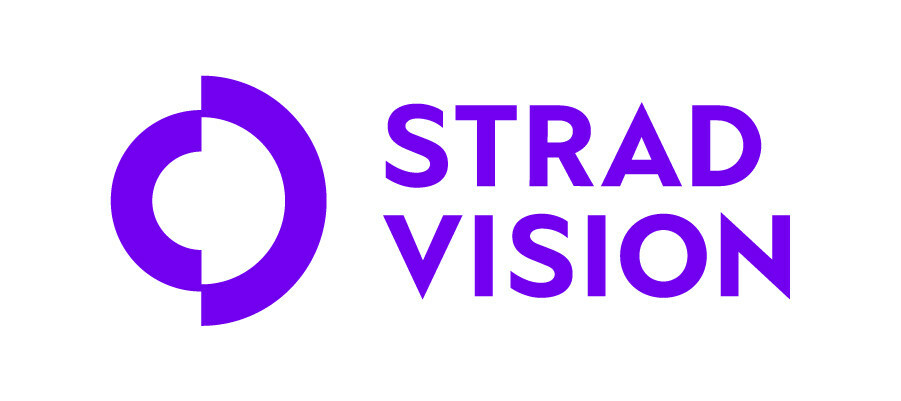






 betfred ddhh
betfred ddhh

